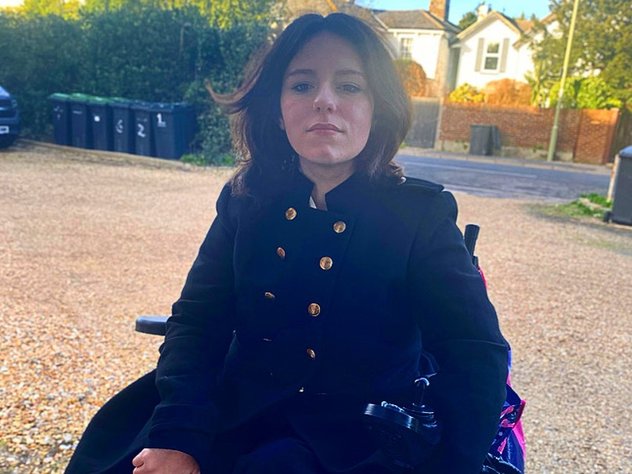Inspiring inclusion: the wheelchair-using women changing lives on International Women’s Day
Faith Martin highlights three women who are shaking up their sectors and rolling over the rule book to fight for disabled women’s inclusion
This year’s International Women’s Day theme is Inspiring Inclusion. Here at Whizz Kidz, we champion inclusion every day. So, we wanted to celebrate inspiring wheelchair-using women who are changing lives and challenging the stigma around being a disabled woman in society.
According to the World Health Organisation, 300 million women have a disability across the globe, making up 10% of the world's population. Disability intersects all cultures, workplaces and corners of society; therefore, disability inclusion is vital for everyone. Gender inequality is a huge issue for all women, and the impacts can be seen in the Gender Pay Gap, medical discrimination and poorer social mobility.
UK government figures state 342,000 working-age disabled people were unemployed as of March 2023. There are a multitude of reasons why disabled people are out of work. However, a recurring issue in creative industries is the attitudes towards disabled people and the lack of resources available to allow us to have equal access. Wheelchair users have just as much to offer as anyone else, but it seems the arts and culture sector has been extremely slow in recognising this. Despite that, amazing women all over the UK are looking to tear up the old-fashioned rule book.
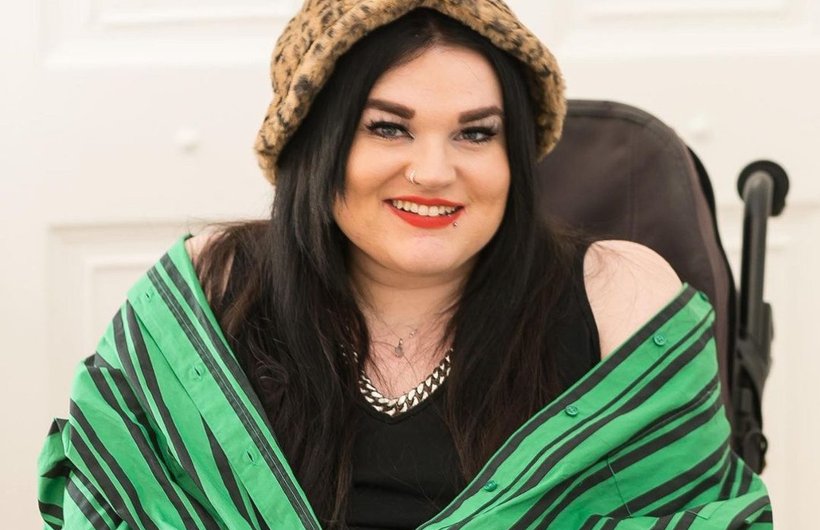

The talent agency owner and activist
Kelly Gordon is a disability activist and business owner; in 2020, she co-founded the company With Not For, a recruitment business that promotes disabled talent in the media industry, both on and off the screen. Their mission is to aid disabled creatives into employment by connecting them with the appropriate employers and providing disability training businesses along the way. When she’s not busy running her business, Kelly regularly advocates for disability rights on platforms such as BBC Women’s Hour, Channel 4 and Sky News.
Kelly and her business partner, Emma Gardner, met online and connected over their shared experiences of being disabled. Kelly explains, “We strongly believe that disabled people should be able to be creative and work on any project, not just being employed for Disability-related briefs or on awareness days.”
Kelly details how With Not For gives her self-expression: “Being CEO of With Not For allows me to be truly myself and represent incredible disabled people and ultimately be part of them securing incredible opportunities.”
Inclusion is Kelly’s primary driving force. She unwaveringly believes that inclusion creates more opportunities for everyone. “When big industries begin to understand that when a workforce is truly diverse, companies will thrive and grow, that will be a day when we really see major change and innovation.”
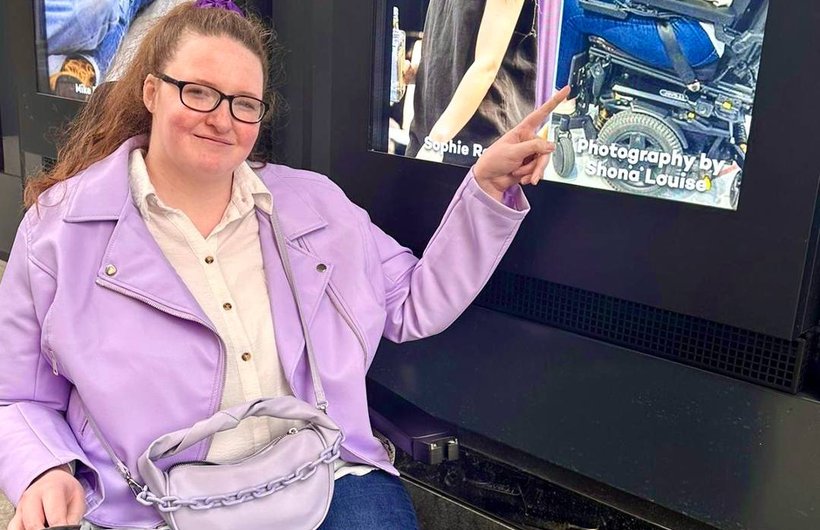

The West End theatre photographer
Many careers are now open to disabled people, however some creative paths don’t take wheelchair accessibility into account. One major issue is the lack of sufficient disabled access at theatres, as many buildings simply are not built for wheelchairs. Being an audience member is one thing, but what if you’re looking to forge a career in theatre photography?
Shona Louise is a theatre photographer who is changing the performing arts landscape for other wheelchair users. After being invited to a press event and taking her camera along for fun, the photographer has been honing her craft for five years. Shona has now photographed multiple productions on London’s West End and has made a name for herself in the performance photography space. When discussing how she started, Shona said, “I began to carve my own path, gaining experience wherever I could. I also started working with disabled-led theatre and disabled artists.”
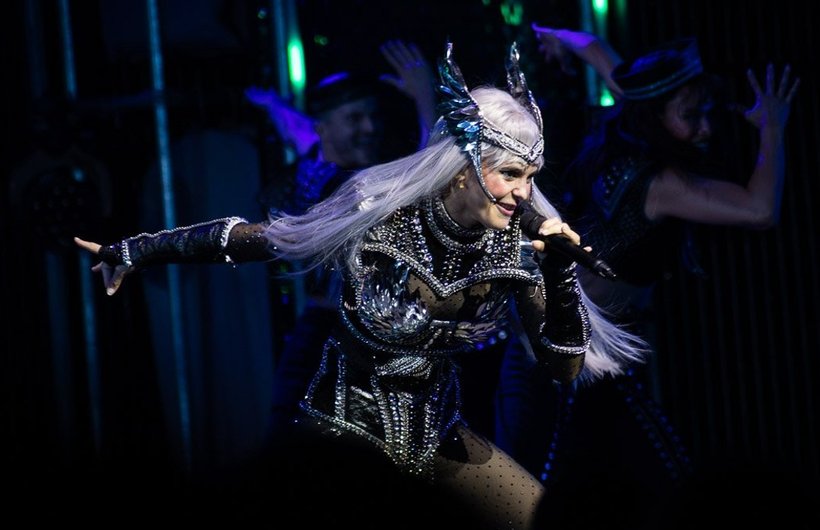

Shona detailed how working with disabled-led shows meant that wheelchair access was also less of a barrier, after photographing ‘The Little Big Things’ at Soho Palace.
“It’s a brand new theatre that has accessibility on and off stage, as well as an accessible rehearsal room that finally allows me to do the kind of jobs that excite me most.”
When talking about some of her proudest achievements in the industry, Shona recalls, “Seeing my photos displayed outside a West End theatre is a moment I’ll never forget. Five years ago, I wouldn’t have been able to do the kind of work I do now, and a lot of that is down to changing attitudes.”
A true trailblazer, Shona hopes the younger generation will now have an example to follow, proving that wheelchair users can work in creative roles. “It’s through my perseverance and constant conversations with those working in the industry that changes have been able to happen. I can now tell the next generation of disabled photographers that yes, this is a viable career path.”
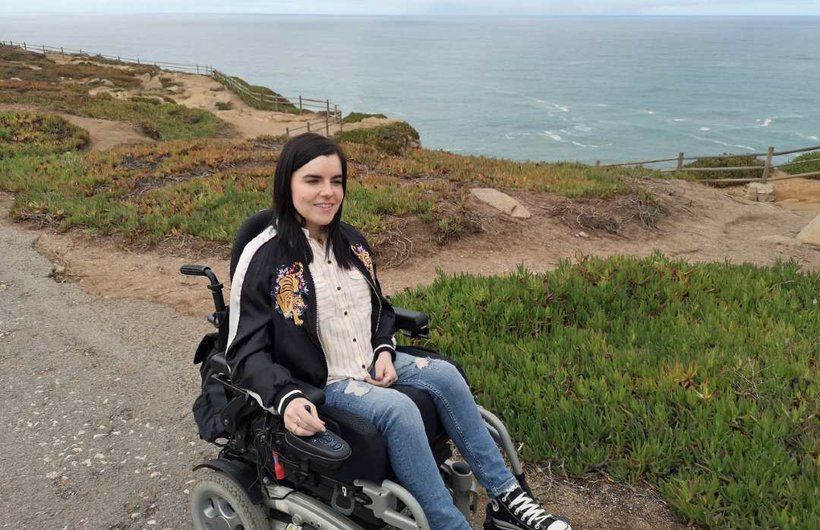

The accessible travel campaigner
People travel from all over the world to access London’s West End, but what happens if you’re a wheelchair user? Time and time again, the news is littered with stories about broken wheelchairs on flights and inaccessible public transport. Just recently, a video of a woman went viral on TikTok after she had to climb up a flight of stairs in a sitting position because no train staff members had informed her of a broken lift.
Emma Muldoon is an accessible travel campaigner who runs an incredibly successful online blog, Simply Emma, amassing thousands of followers. Emma lives with a rare disease called limb-girdle muscular dystrophy. has used her platform to showcase accessible travel destinations in the UK and abroad. Enlightened by her lived experience, Emma has been a figurehead for positive change within the travel industry. “I use my experiences to inform my work, which is all about making life easier and more accessible for disabled people”… “I believe that by working together and building a community, we can help more disabled people have the same opportunities as everyone else.”
Her Simply Emma blog has landed her many more varied roles within the industry and allowed her to get hands-on with curating change. “My work has opened the door to regular freelance writing opportunities, involvement in changemaking, and [working with] tourism boards from around the world to improve and showcase accessible travel.”
Travelling can be highly challenging for wheelchair users as there is often a lack of information regarding access. For those with more complex needs, basic-level accommodations like standard accessible toilets often don’t cater for them. Emma is on a mission to change this, as she regularly talks about the need for changing places and accessible hotel accommodation online. “I aim to inspire and encourage disabled people to travel, explore and discover new places by sharing accommodation reviews, city guides [and] travel tips.”
Emma was awarded an MBE for services to disabled people and has won many awards for her inclusion work, including the Prime Minister’s Points Of Light award and has been listed on Shaw Trust’s Top 100 most influential disabled people in the UK.
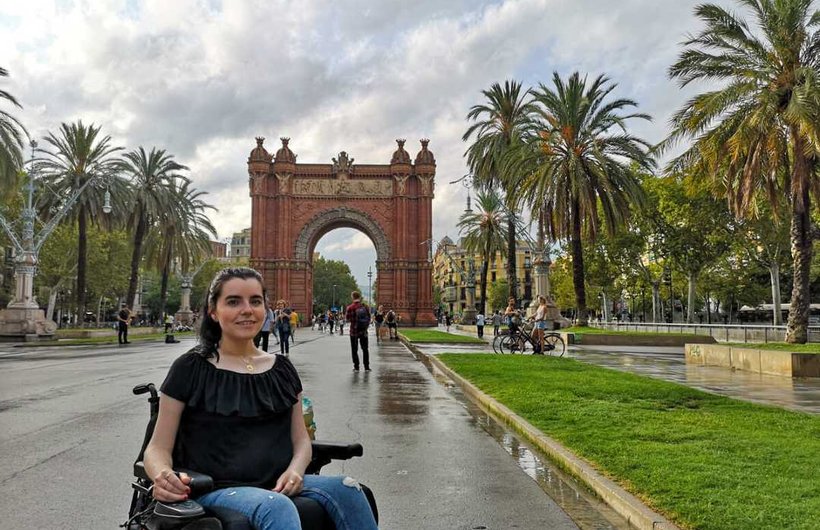

Society can support disabled women in many different ways, including removing barriers to employment, increasing work-from-home roles, improving accessibility in society, starting with transportation and access to workplaces, and supporting wheelchair users to become independent by changing attitudes from the very top. The change makers we’ve highlighted are forging a brand new path for future generations of strong female wheelchair users and are the perfect people to celebrate this International Women’s Day.
About Faith Martin
Faith is a 22-year old arts and culture journalist and disability rights champion. Her work appears in the Daily Mirror, Metro, and Gigwise. A powered wheelchair user who campaigns for equal access to live events, she's written about Doctor Who and accessible dating for Whizz Kidz.
